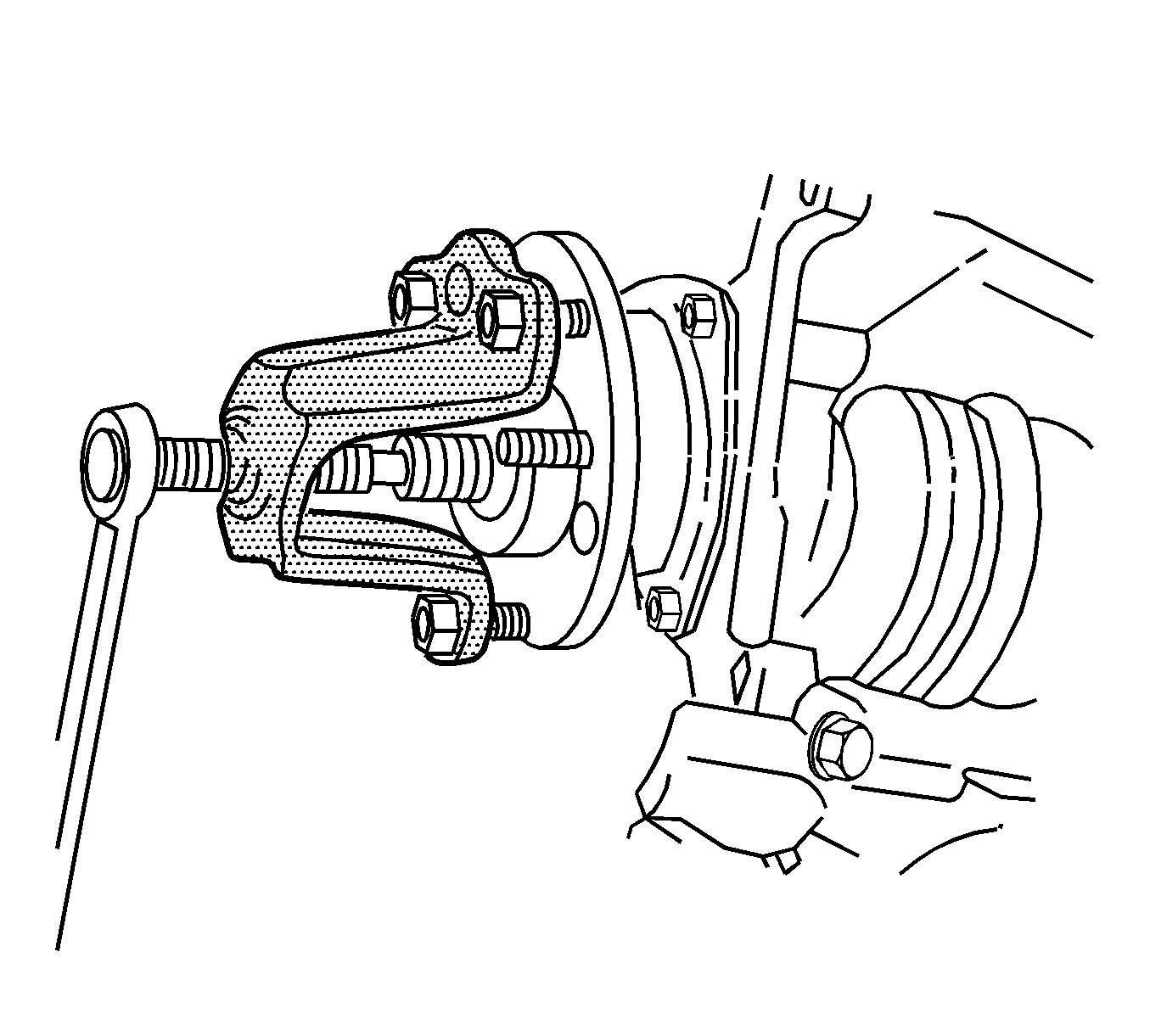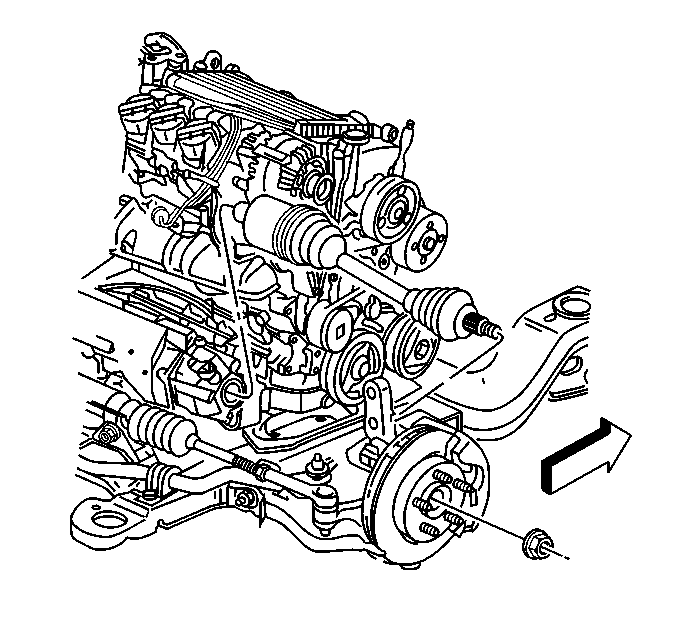Removal Procedure
Tools Required
Important: Prevent the seals (boots) from contacting the other components in order
to prevent damage to the seals (boots).
- Raise and suitably support the vehicle. Refer to
Lifting and Jacking the Vehicle
in General Information.
- Remove the wheel and the tire. Refer to
Tire and Wheel Removal and Installation
in Tires
and Wheels.
- Remove the stabilizer shaft link. Refer to
Stabilizer Shaft Link Replacement
in Front Suspension.
- Remove the front wheel drive shaft nut. Insert a drift or a flat-bladed
tool into the caliper and the rotor to prevent the rotor from turning.
- Disconnect the outer tie rod assembly from the steering knuckle.
Refer to
Rack and Pinion Outer Tie Rod End Replacement
in Power Steering System.
- Separate the ball joint from the steering knuckle.
Refer to
Lower Control Arm Ball Joint Replacement
.

Caution: Do not attempt to move vehicle with drive axle(s) removed from wheel
bearing. Wheel(s) could fall off, dropping vehicle to the ground and causing
personal injury or damage to the vehicle.
- Separate the front wheel drive axle from the front wheel drive shaft
bearing using the J 28733-B
. The nut can be partially re-installed to protect
the threads.

- Remove the front wheel
drive axle from the transaxle.
| • | Use the frame for leverage. |
| • | Place a flat-bladed tool in the groove on the front wheel drive
shaft tri-pot joint (inner joint). |
| • | Separate the front wheel drive axle from the transaxle. |
Installation Procedure

Important: Prevent the boots (seals) from contacting the other components in order
to prevent damage to the boots (seals).
- Seat the front wheel drive axle into the transaxle.
- Verify that the front wheel drive shaft retaining ring is properly
seated.
Grasp the inner housing and pull the inner housing outboard. Do not
pull on the front wheel drive axle shaft.
The front wheel drive axle will remain in place when the front wheel
drive shaft retaining ring is properly seated.
- Install the front wheel drive axle into the front wheel drive
shaft bearing.
- Connect the ball joint to the steering knuckle. Refer to
Lower Control Arm Ball Joint Replacement
.
- Connect the outer tie rod assembly to the steering knuckle. Refer
to
Rack and Pinion Outer Tie Rod End Replacement
in Power Steering System.
Notice: Use the correct fastener in the correct location. Replacement fasteners
must be the correct part number for that application. Fasteners requiring
replacement or fasteners requiring the use of thread locking compound or sealant
are identified in the service procedure. Do not use paints, lubricants, or
corrosion inhibitors on fasteners or fastener joint surfaces unless specified.
These coatings affect fastener torque and joint clamping force and may damage
the fastener. Use the correct tightening sequence and specifications when
installing fasteners in order to avoid damage to parts and systems.
- Install a new front wheel drive shaft
nut. Insert a drift or a flat-bladed tool into the caliper and
the rotor to prevent the rotor from turning.
Tighten
Tighten the front wheel drive shaft nut to 160 N·m (118 lb ft).
- Install the stabilizer shaft link. Refer to
Stabilizer Shaft Link Replacement
in Front Suspension.
- Install the wheel and the tire. Refer to
Tire and Wheel Removal and Installation
in Tires
and Wheels.
- Lower the vehicle.
- Inspect the transaxle fluid level.
- Inspect the wheel alignment. Refer to
Wheel Alignment Measurement
.



